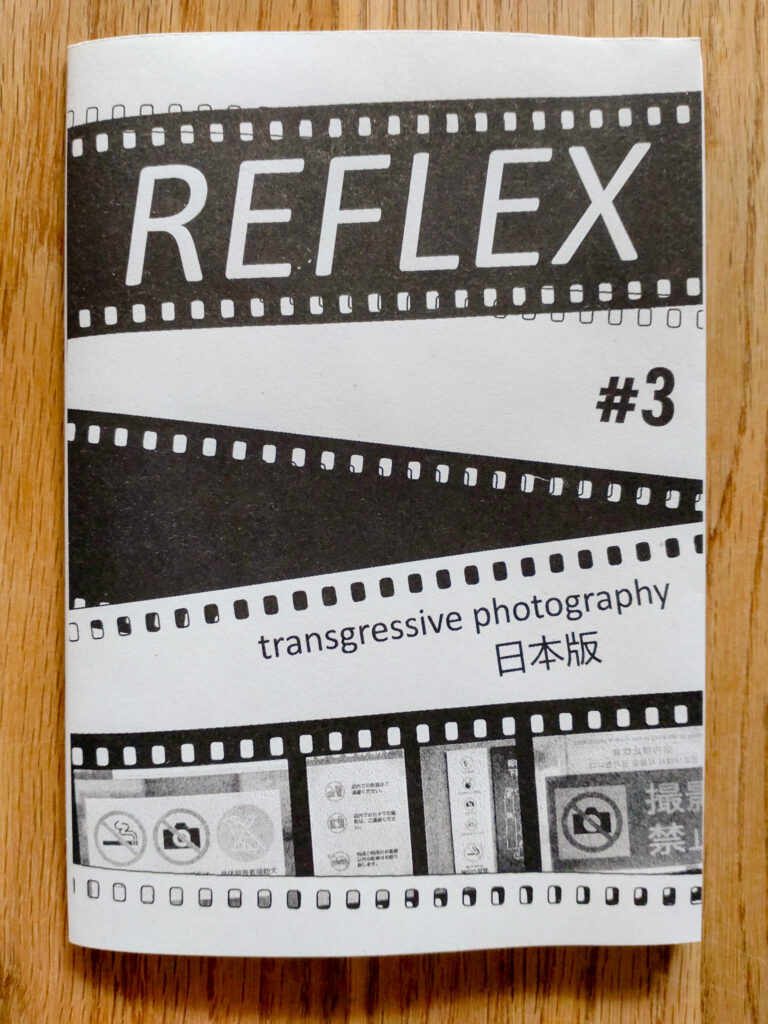
Reflex #3 is a small collection of 攝影禁止(‘photography prohibited’)-signs from Japan, and an attempt at transgressive photography, since I had to photograph the signs to collect them.
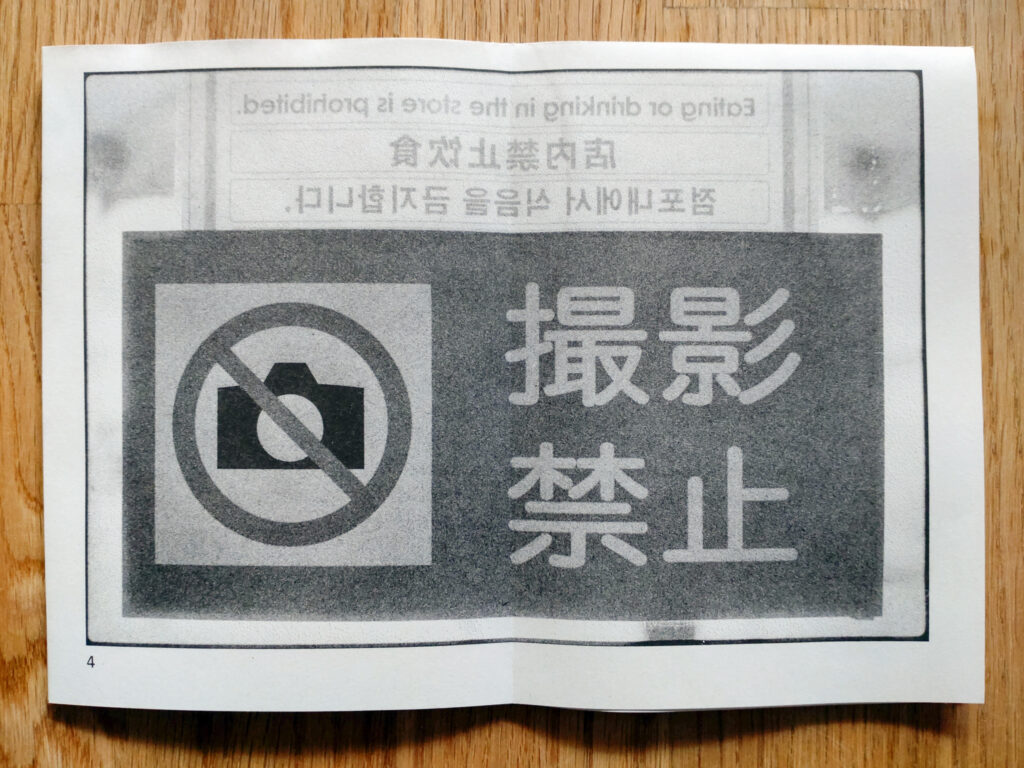
Printed and available for sale at the nachladen.

Reflex #3 is a small collection of 攝影禁止(‘photography prohibited’)-signs from Japan, and an attempt at transgressive photography, since I had to photograph the signs to collect them.

Printed and available for sale at the nachladen.
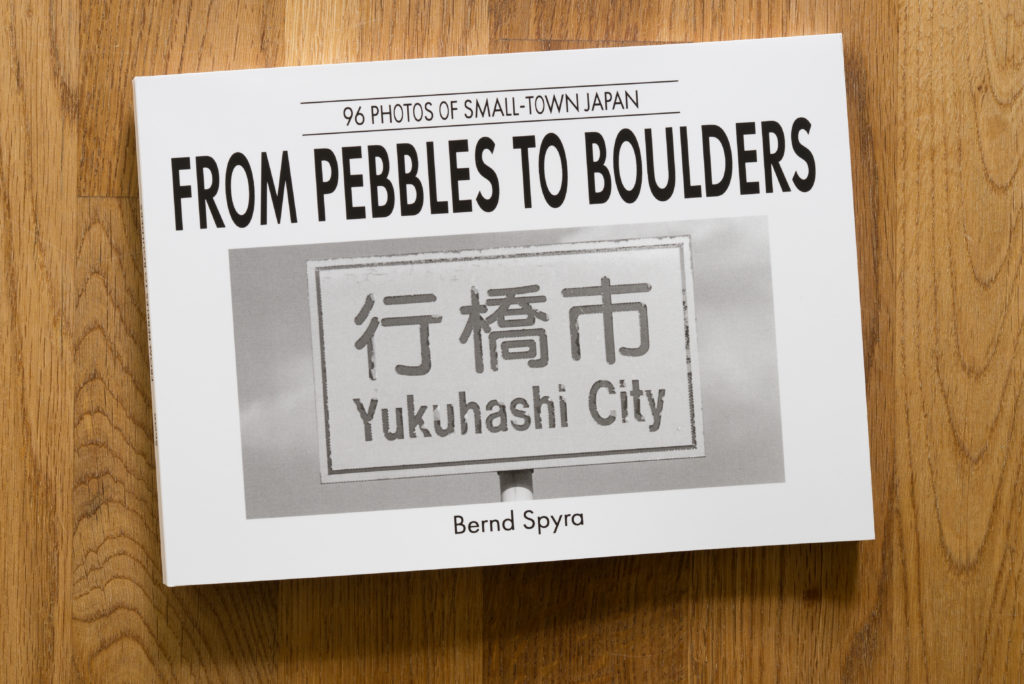
As already described here and here, the emerging COVID-19 pandemic left my wife and me stranded in her hometown Yukuhashi from March to July 2020 — right after the birth of our son. During that time, I carried a camera wherever I went, resulting in the capture of a large number of scenes of the local landscape, stones, rivers, houses, people, economy, politics, COVID-19, popular mythology and religion … my perspective on Japan “from pebbles to boulders,” so to speak.
Back in Hamburg, work was begun to edit the photos into bookshape. Being a side-project to my research, it took until September of this year to see the publication of the finished book. While 38 cartridges of film were carefully exposed and developed by hand in Yukuhashi, only 96 of the resulting photos were selected and arranged for this book, the layout being handled by Shoko Tanaka.
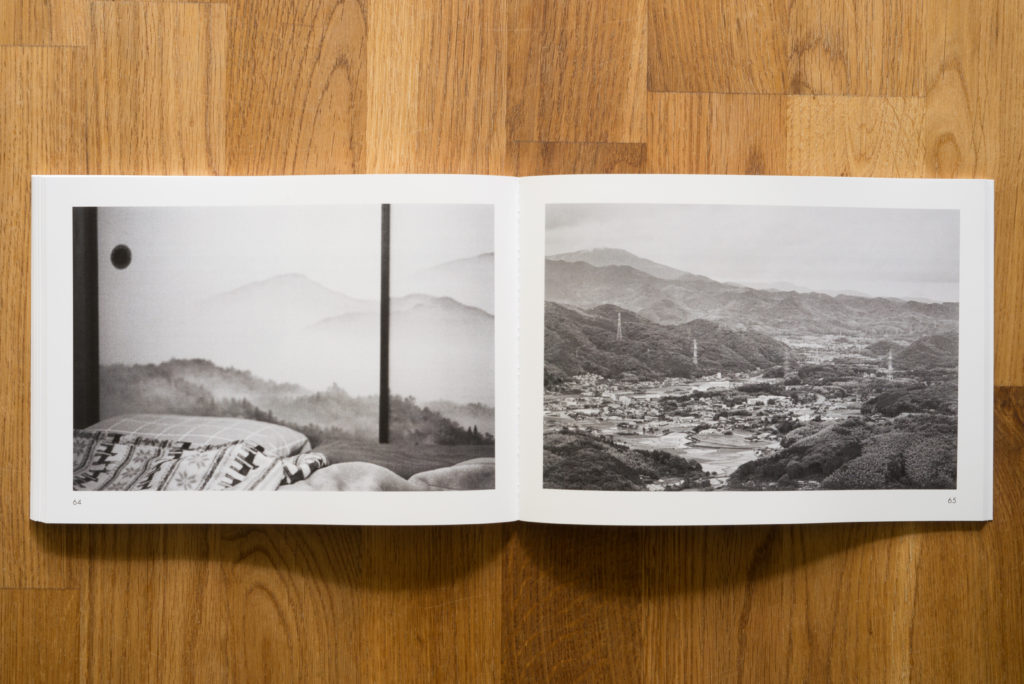
The book is printed to order by Norderstedt’s finest “Books on Demand” printer-publisher. It can be ordered (in Europe) through any purveyor of books of your choice, i.e. your local brick and mortar bookstore (suggested!), Book on Demand’s own webstore or various online bookshops.
From Pebbles to Boulders : 96 Photos of Small-Town Japan
ISBN 978-3-75349986-4
19,49 €
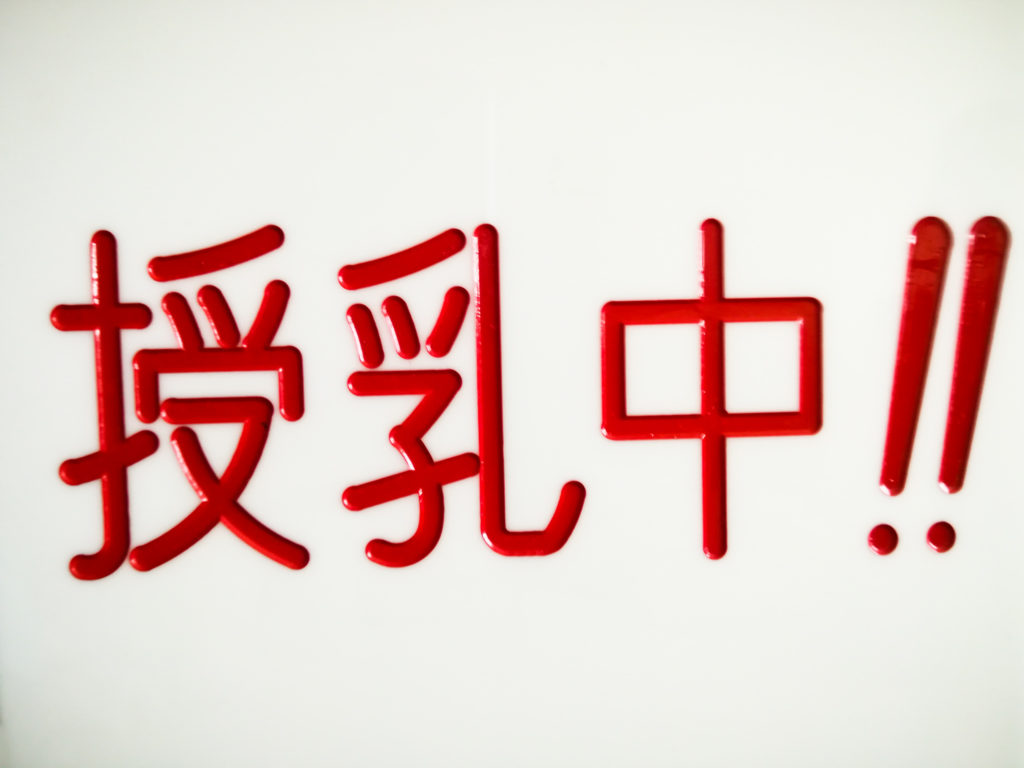
Long time no see:
On February 28, I arrived in Yukuhashi, the hometown of my wife, where she wanted to give birth to our first child. As intended, this happened not long after my arrival and since then both her and the baby are doing fine.
We planned to return to Hamburg in the middle of May, but now it looks like our return has been postponed indefinitely, due to the recent worldwide unpleasantness related to the Coronavirus. This leaves us stranded in Yukuhashi, a small (dare I say rural?) town on the southwestern shore of the Japanese Inland Sea, in the vicinity of the metropolitan area of Kitakyushu. Even though the baby naturally takes up most of our energy (which we gladly give to him), still plenty of opportunities to record the peculiarities of local life with my camera present themselves almost on a daily basis.
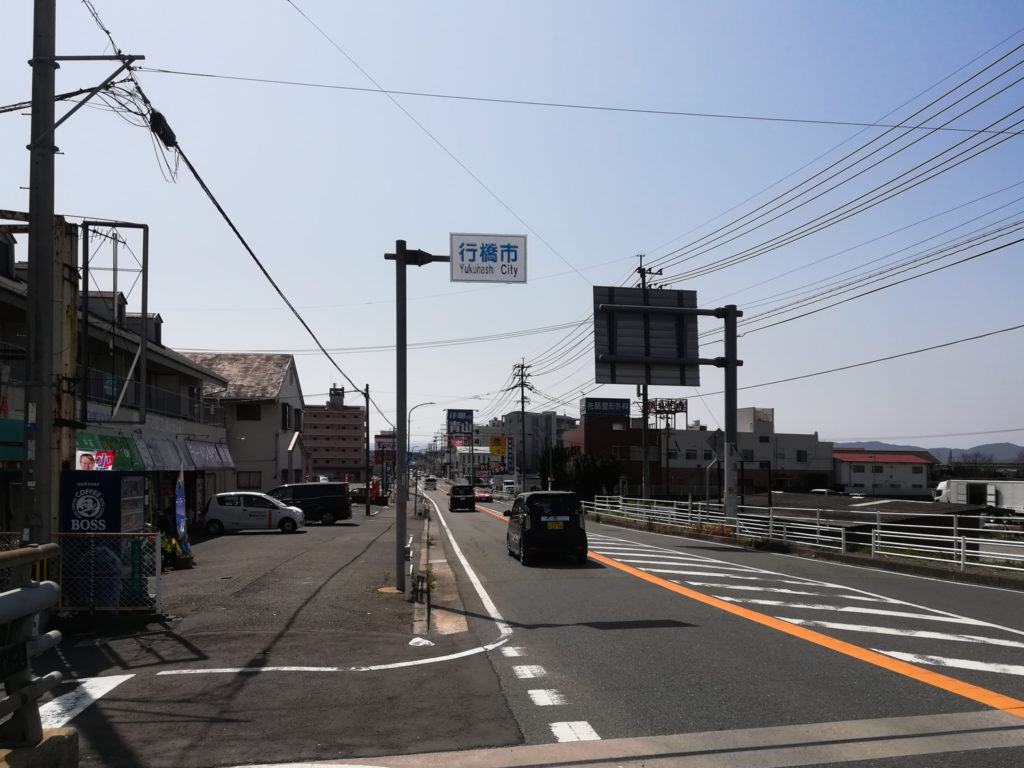
Since as usual my tool of choice is a 35mm film camera, it will take some time for anyone to see the photos taken here. They are forthcoming though.
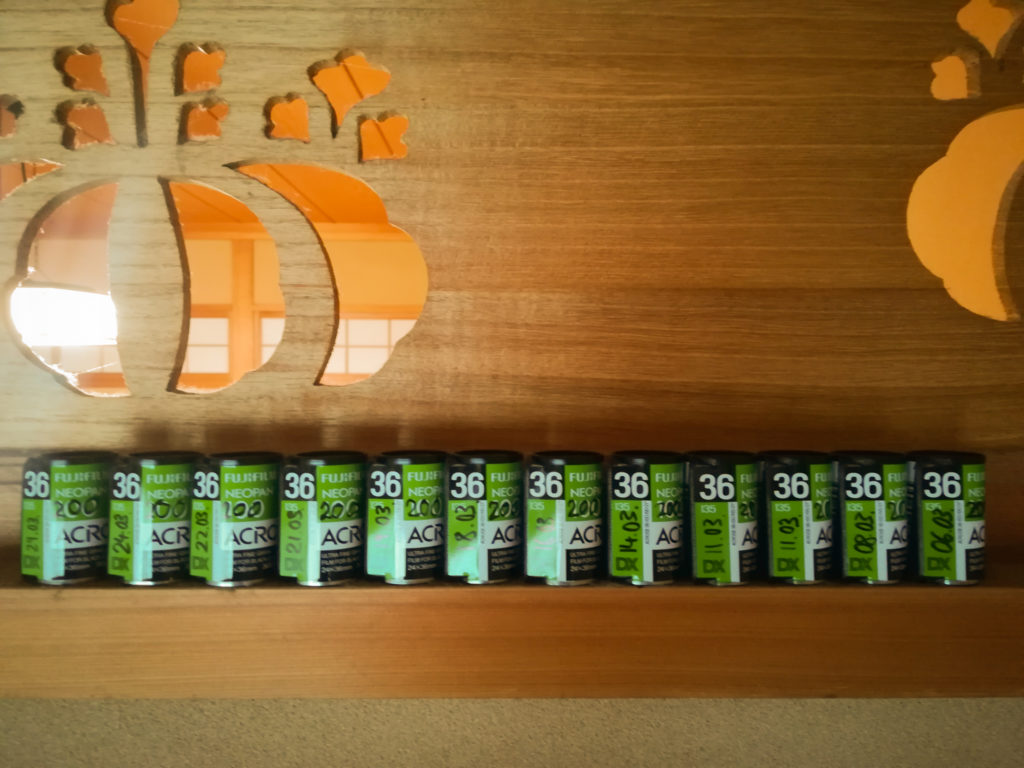
Meanwhile in Hamburg: Various issues of my photo magazine “reflex” are now available through the online store of the Nachladen, as are many other publications by local artists from Hamburg. Please check it out.
Another part of the local scenery that you just can’t avoid noticing are the automatic vending machines which are set up everywhere, no matter if it’s the center of the city or residential neighbourhoods. Solitary or in groups they wait for a thirsty passerby to offer softdrinks to or maybe even a can of Sake. They remind me of the little Shinto shrines and Buddhist statues also commonly seen at the side of the road, but of course these vending machines serve a more mundane purpose, being dedicated to the gods of Consumer culture.
It might seem like a strange subject matter to start with, but in fact one of the first and ultimately most striking things to catch my eye in Yukuhashi were the graves and little cemeteries, for they are seemingly everywhere. Being situated between the fields, in the middle of the city, in backyards, next to parking spaces or even close to shopping malls, sometimes it isn’t clear what was there first, the graves or their surroundings. Anyway, there appears to be none of the distance we keep from our deceased, who we usually put out of sight in cemeteries, away from our homes and workplaces.